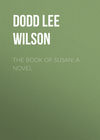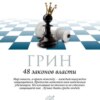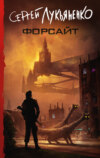Читать книгу: «The Book of Susan: A Novel», страница 7
V
I could not face Maltby again that evening, as I had promised, for our good sensible man-to-man talk; a lapse in courage which reduced him to rabid speculation and restless fury. So furious was he, indeed, after a long hour alone, that he telephoned for a taxi, grabbed his suitcase, and caught a slow midnight local for New York – from which electric center he hissed back over the wires three ominous words to ruin my solitary breakfast:
"He laughs best – M. Phar."
While my egg solidified and the toast grew rigid I meditated a humble apologetic reply, but in the end I could not with honesty compose one; though I granted him just cause for anger. With that, for the time being, I dismissed him. There were more immediate problems, threatening, inescapable, that must presently be solved.
Susan, always an early riser, usually had a bite of breakfast at seven o'clock – brought to her by the faithful Miss Goucher – and then remained in her room to work until lunch time. For about a year past I had so far caught the contagion of her example as to write in my study three hours every morning; a regularity I should formerly have despised. Dilettantism always demands a fine frenzy, but now it astounded me to discover how much respectable writing one could do without waiting for the spark from heaven; one could pass beyond the range of an occasional article and even aspire to a book. Only the final pages of my first real book —Aristocracy and Art, an essay in æsthetic and social criticism – remained to be written; and Susan had made me swear by the Quanglewangle's Hat, her favorite symbol, to push on with it each morning till the job was done.
Well, Aristocracy and Art has since been published and, I am glad to say, forgotten. Conceived in superciliousness and swaddled in preciosity, it is one of the sins I now strive hardest to expiate. But in those days it expressed clearly enough the crusted aridity of my soul. However —
I had hoped, of course, that Susan would break over this morning and breakfast with me. She did not; and from sheer habit I took to my study and found myself in the chair before my desk. It was my purpose to think things out, and perhaps that is what I supposed myself to be doing as I stared dully at an ink blob on my blotter. It looked – and I was idiotically pleased by the resemblance – rather like a shark. All it needed was some teeth and a pair of flukes for its tail. Methodically I opened my fountain pen and supplied these, thereby reducing one fragment of chaos to order; and then my eye fell upon a half-scribbled sheet, marked "Page 224."
The final sentence on the sheet caught at me and annoyed me; it was ill-constructed. Presently it began to rearrange itself in whatever portion of us it is that these shapings and reshapings take place. Something in its rhythm, too, displeased me; it was mannered; it minuetted; it echoed Pater at his worst. It should be simpler, stronger. Why, naturally! I lopped at it, compressed it, pulled it about..
There! At last the naked idea got the clean expression it deserved; and it led now directly to a brief, clear paragraph of transition. I had been worrying over that transition the morning before when my pen stopped; now it came with a smooth rush, carrying me forward and on.
Incredible, but for one swiftly annihilated hour I forgot all my insoluble life problems! Art, that ancient Circe, had waved her wand; I was happy – and it was enough. I forgot even Susan.
Meanwhile, Susan, busy at her notebook, had all but forgotten me.
"Am I in love with Ambo, or am I just trying to be for his sake? If happiness is a test, then I can't be in love with him, for there is no happiness in me. But what has happiness to do with love? It's just as I told nice old Phil last night. To be in love is to be silly enough to suppose that some other silly can gather manna for you from the meadows of heaven. Meanwhile, the other silly is supposing much the same nonsense about you – or if he isn't, then the sun goes black. What lovers seem to value most in each other is premature softening of the brain. But surely the union of two vain hopes in a single disappointment can never mean joy? No. You might as well get it said, Susan. Love is two broken reeds trying to be a Doric column.
"Still, there must be some test. Is it passion? How can it be?
"When I ran to Ambo last night I was pure rhythm and flame; but this morning I'm the hour before sunrise. No; I'm the outpost star, the one the comets turn – the one that peers off into nowhere.
"Perhaps if Ambo came to me now I should flame again; or perhaps I should only make believe for his sake. Is wanting to make believe for another's sake enough? Why not? I've no patience with lovers who are always rhythm and flame. Even if they exist – outside of maisons de santé– what good are they? Poets can rave about them, I suppose – that's something; but imagine coming to the end of life and finding that one had merely furnished good copy for Swinburne! No, thank you, Mrs. Hephæstus – you beautiful, shameless humbug! I prefer Apollo's lonely magic to yours. I'd rather be Swinburne than Iseult. If there's any singing left to be done I shall try to do part of it myself.
"There, you see; already you've forgotten Ambo completely – now you'll have to turn back and hunt for him. And if he's really working on Aristocracy and Art this morning, as he should be, then he has almost certainly forgotten you. Oh, dear! but he isn't – and he hasn't! Here he comes – "
Yes, I came; but not to ask for assurances of love. Man is so naïvely egotist, it takes a good deal to convince him, once the idea has been accepted, that he is not the object of an unalterable devotion. Frankly, I took it for granted now that Susan loved me, and would continue to love me till her dying hour.
What I really came to say to her, under the calming and strengthening influence of two or three rather well-written pages, was that our situation had definitely become untenable. I am an emancipated talker, but I am not an emancipated man; the distinction is important; the hold of mere custom upon me is strong. I could not see myself asking Susan to defy the world with me; or if I could just see it for my own sake, I certainly couldn't for hers. Nor could I see it for Gertrude's. Gertrude, after all, was my wife; and though she chose to feel I had driven her from my society, I knew that she did not feel willing to seek divorce for herself or to grant the freedom of it to me. On this point her convictions, having a religious sanction, were permanent. Gentle manners, then, if nothing higher, forbade me to seize the freedom she denied me. Having persuaded Gertrude, in good faith, to enter into an unconditional contract with me for life, I could no more bring myself to break it than I could have forced myself to steal another's money by raising a check.
My New England ancestors had distilled into my blood certain prejudices; only, where my great-grandfather, or even my grandfather, would have said that he refrained from evil because he feared God, I was content merely to feel that there are some things a gentleman doesn't stoop to. With them it was the stern daughter of the voice of God who ruled thoughts and acts; with me it was, if anything, the class obligations of culture, breeding, good form. Just as I wore correct wedding garments at a wedding, and would far rather have cut my throat with a knife than carry food on it from plate to mouth, so, in the face of any of life's moral or emotional crises, I clung to what instinct and cultivation told me were the correct sentiments.
Gertrude, it is true, was not precisely fulfilling her part in our contract, but then – Gertrude was a woman; and the excusable frailties of women should always be regarded as trumpet calls to the chivalry of man. Absurdly primitive, such ideas as these! Seated with Maltby Phar in my study, I had laughed them out of court many a time; for I could talk pure Bernard Shaw – our prophet of those days – with anybody, and even go him one better. But when it came to the pinch of decisive action I had always thrown back to my sources and left the responsibility on them. I did so now.
Yet it was hard to speak of anything but enchantment, witchery, fascination, when, from her desk, Susan looked round to me, faintly puzzled, faintly smiling. She was not a pretty girl, as young America – its taste superbly catered to by popular magazines – understands that phrase; nor was she beautiful by any severe classic standard – unless you are willing to accept certain early Italians as having established classic standards; not such faultless painters as Raphael or Andrea del Sarto, but three or four of the wayward lesser men whose strangely personal vision created new and unexpected types of loveliness. Not that I recall a single head by any one of them that prefigured Susan; not that I am helping you, baffled reader, to see her. Words are a dull medium for portraiture, or I am too dull a dog to catch with them even a phantasmal likeness. It is the mixture of dark and bright in Susan that eludes me; she is all soft shadow and sharpest gleams. But that is nonsense. I give it up.
It was really, then, a triumph for my ancestors that I did not throw myself on my knees beside her chair – the true romantic attitude, when all's said – and draw her dark-bright face down to mine. I halted instead just within the doorway, retaining a deathlike grip on the door-knob.
"Dear," I blurted, "it won't do. It's the end of the road. We can't go on."
"Can we turn back?" asked Susan.
I wonder the solid bronze knob did not shatter like hollow glass in my hand.
"You must help me," I muttered.
"Yes," said Susan, all quiet shadow now, gleamless; "I'll help you."
Half an hour after I left her she telephoned and dispatched the following telegram, signed "Susan Blake," to Gertrude at her New York address:
"Either come back to him or set him free. Urgent."
VI
The reply – a note from Gertrude, the ink hardly dry on it, written from the Egyptian tomb of the Misses Carstairs – came directly to me that evening; and Mrs. Parrot was the messenger. Her expression, as she mutely handed me the note, was ineffable. I read the note with sensations of suffocation; an answer was requested.
"Tell Mrs. Hunt," I said firmly to Mrs. Parrot, "that it was she who left me, and I am stubbornly determined to make no advances. If she cares to see me I shall be glad to see her. She has only to walk a few yards, climb a few easy steps, and ring the bell."
My courtesy was truly elaborate as I conducted Mrs. Parrot to the door. Her response was disturbing.
"It's not for me to make observations," said Mrs. Parrot, "the situation being delicate, and not likely to improve. But if I was you, Mr. Hunt, I'd not be too stiff. No; I'd not be. I would not. No. Not if I valued the young lady's reputation."
Like the Pope's mule, Mrs. Parrot had saved her kick many years. I can testify to its power.
Thirty minutes later this superkick landed me, when I came crashing back to earth, at the door of the Egyptian tomb.
"How hard it is," says Dante, "to climb another's stairs," and he might have added to ring another's bell, under certain conditions of spiritual humiliation and stress. Thank the gods – all of them – it was not Mrs. Parrot who admitted me and took my card!
I waited miserably in the large, ill-lighted reception vault of the tomb, which smelt appropriately of lilies, as if the undertaker had recently done his worst. How well I remembered it, how long I had avoided it! It was here of all places, under the contemptuous eye of old Ephraim Carstairs, grim ancestral founder of this family's fortunes, that Gertrude had at last consented to be my wife. And there he still lorded it above the fireplace, unchanged, glaring down malignantly through the shadows, his stiff neck bandaged like a mummy's, his hard, high cheek bones and cavernous eyes making him the very image of bugaboo death. What an eavesdropper for the approaching reconciliation; for that was what it had come to. That was what it would have to be!
It was not Gertrude who came down to me; it was Lucette. Lucette – all graciousness, all sympathetic understanding, all feline smiles! Dear Gertrude had 'phoned her on arriving, and she had rushed to her at once! Dear Gertrude had such a desperate headache! She couldn't possibly see me to-night. She was really ill, had been growing rapidly worse for an hour. Perhaps to-morrow?
I was in no mood to be tricked by this stale subterfuge.
"See here, Lucette," I said sternly, "I'm not going to fence with you or fool round at cross purposes. Less than an hour ago Gertrude sent over a note, asking me to call."
"To which you returned an insufferable verbal reply."
"A bad-tempered reply, I admit. No insult was intended. And I've come now to apologize for the temper."
"Oh, dear!" sighed Lucette. "Men always do their thinking too late. I wish I could reassure you; but the mischief seems to be done. Poor Gertrude is furious."
"Then the headache is – hypothetical?"
"An excuse, you mean? I wish it were, for her sake!" Lucette's eyes positively caressed me, as a tiger might lick the still-warm muzzle of an antelope, its proximate meal. "If you could see her face, poor creature! She's in torment."
"I'm sorry."
"Isn't that – what you called her headache?"
"No. I'm ashamed of my boorishness. Let me see Gertrude and tell her so."
Lucette smiled, slightly shaking her head. "Impossible – till she's feeling better. And not then – unless she changes her mind. You see, Ambrose, Mrs. Parrot's version of your reply was the last straw."
"No doubt she improved on the original," I muttered.
"Oh, no doubt," agreed Lucette calmly. "She would. It was silly of you not to think of that."
"Yes," I snapped. "Men always underestimate a woman's malice."
"They have so many distractions, poor dears. Men, I mean. And we have so few. You can put that in your next article, Ambrose?" She straightened her languid curves deliberately, as if preparing to rise.
"Please!" I exclaimed. "I'm not ready for dismissal yet. We'll get down to facts, if you don't mind. Why is Gertrude here at all? After years of silence? Did you send for her?"
Lucette's spine slowly relaxed, her shoulders drooped once more. "I? My dear Ambrose, why on earth should I do a thing like that?"
"I don't know. The point is, did you?"
"You think it in character?"
"Oh – be candid! I don't mean directly, of course. But is she here because of anything you may have telephoned her – after your call last night?"
"Really, Ambrose! This is a little too much, even from you."
"Forgive me – I insist! Is she?"
"You must have a very bad conscience," replied Lucette.
"I am more interested in yours."
She laughed luxuriously, "Mine has never been clearer."
Did the woman want me to stop her breath with bare hands? I gripped the mahogany arms of my stiff Chippendale chair.
"Listen to me, Lucette! I know this is all very thrilling and amusing for you. Vivisection must have its charms, of course – for an expert. But I venture to remind you that once upon a time you were not a bad-hearted girl, and you must have some remnants of human sympathy about you somewhere. Am I wrong?"
"You're hideously rude."
"Granted. But I must place you. I won't accept you as an onlooker. Either you'll fight me or help me – or clear out. Is that plain?"
"You're worse than rude," said Lucette; "you're a beast! I always wondered why Gertrude couldn't live with you. Now I know."
"That's better," I hazarded. "We're beginning to understand each other. Now let's lay all our cards face up on the table?"
Lucette stared at me a moment, her lips pursed, dubious, her impenetrable blue eyes holding mine.
"I will, if you will," she said finally. "Let's."
It was dangerous, I knew, to take her at her word; yet I ventured.
"I've a weak hand, Lucette; but there's one honest ace of trumps in it."
"There could hardly be two," smiled Lucette.
"No; I count on that. In a pinch, I shall take the one trick essential, and throw the others away." I leaned to her and spoke slowly: "There is no reason, affecting her honor or rights, why Gertrude may not return to her home – if she so desires. I think you understand me?"
"Perfectly. You wish to protect Miss Blake. You would try to do that in any case, wouldn't you? But I'm rather afraid you're too late. I'm afraid Miss Blake has handicapped you too heavily. If so, it was clever of her – for she must have done it on purpose. You see, Ambrose, it was she who sent for Gertrude."
"Susan!"
"Susan. Telegraphed her – of all things! – either to come home to you or set you free. The implication's transparent. Especially as I had thought it my duty to warn Gertrude in advance – and as Mr. Phar sent her, by messenger, a vague but very disturbing note this morning."
"Maltby?"
"Yes. His note was delivered not five minutes ahead of Susan's wire. Gertrude caught the next train. And there you are."
Well, at least I began to see now, dimly, where Maltby was, where Susan was, where we all were – except, possibly Gertrude. Putting enormous constraint on my leaping nerves, I subdued every trace of anger.
"Two more questions, Lucette. Do you believe me when I say, with all the sincerity I'm capable of, that Susan is slandered by these suspicions?"
"Really," answered Lucette, with a little worried frown, as if anxiously balancing alternatives, "I'm not, am I, in a position to judge?"
I swallowed hard. "All right," I managed to say coldly. "Then I have placed you. You're not an onlooker – you're an open foe."
"And the second question, Ambrose?"
"What, precisely, does Gertrude want from me?"
"I'm not, am I, in a position to judge?" repeated Lucette. "But one supposes it depends a little on what you're expecting – from her?"
"All I humbly plead for," said I, "is a chance to see Gertrude alone and talk things over."
"Don't you mean talk her over?" suggested Lucette. "And aren't you," she murmured, "forgetting the last straw?"
VII
My confusion of mind, my consternation, as I left the Egyptian tomb, was pitiable. One thing, one only, I saw with distinctness: The being I loved best was to be harried and smirched, an innocent victim of the folly and malignity of others.
"Never," I muttered, "Never – never – never!"
This was all very grim and virile; yet I knew that I could grit my teeth and mutter Never! from now till the moon blossomed, without in any way affecting the wretched situation. Words, emotional contortions, attitudes – would not help Susan; something sensible must be done – the sooner the better. Something sensible and decisive – but what? There were so many factors involved, human, incalculable factors; my thought staggered among them, fumbling like a drunken man for the one right door that must be found and opened with the one right key. It was no use; I should never be able to manage it alone. To whom could I appeal? Susan, for the time being, was out of the question; Maltby had maliciously betrayed a long friendship. Phil? Why of course, there was always Phil? Why hadn't I thought of him before?
I turned sharply and swung into a rapid stride. With some difficulty I kept myself from running. Phil seemed to me suddenly an intellectual giant, a man of infinite heart and unclouded will. Why had I never appreciated him at his true worth? My whirling perplexities would have no terrors for him; he would at once see through them to the very thing that should at once be undertaken. Singular effect of an overwhelming desire and need! Faith is always born of desperation. We are forced by deep-lying instincts to trust something, someone, when we can no longer trust ourselves. As I hurried down York Street to his door, my sudden faith in Phil was like the faith of a broken-spirited convert in the wisdom and mercy of God.
Phil's quarters were on the top floor of a rooming-house for students; he had the whole top floor to himself and had lived there simply and contentedly many years, with his books, his pipes, his papers, and his small open wood fire. Phil is not destitute of taste, but he is by no means an æsthete. His furniture is of the ordinary college-room type – Morris chair of fumed oak, and so on – picked up as he needed it at the nearest department store; but he has two or three really good framed etchings on the walls of his study; one Seymour Haden in particular – the Erith Marshes– which I have often tried to persuade him to part with. There is a blending of austerity and subtlety in the work of the great painter-etchers that could not but appeal to this austere yet finely organized man.
His books are wonderful – not for edition or binding – he is not a bibliophile; they are wonderful because he keeps nothing he has not found it worth while to annotate. There is no volume on his shelves whose inside covers and margins are not filled with criticism or suggestive comment in his neat spiderwebby hand; and Phil's marginal notes are usually far better reading than the original text. Susan warmly maintains that she owes more to the inside covers of Phil's books than to any other source; insists, in fact, that a brief note in his copy of Santayana's Reason in Common Sense, at the end of the first chapter, established her belief once for all in mind as a true thing, an indestructible and creative reality, destined after infinite struggle to win its grim fight with chaos. I confess I could never myself see in this note anything to produce so amazing an affirmation; but in these matters I am a worm; I have not the philosophic flair. Here it is:
"'We know that life is a dream, and how should thinking be more?' Because, my dear Mr. Santayana, a dream cannot propagate dreams and realize them to be such. The answer is sufficient."
Well, certainly Susan, too, seemed to feel it sufficient; and perhaps I should agree if I better understood the answer… But I have now breasted four flights to Phil and am knocking impatiently… He opened to me and welcomed me cordially, all trace of his parting gruffness of the other evening having vanished, though he was still haggard about the eyes. He was not alone. Through the smoke haze of his study I saw a well-built youngster standing near the fireplace, pipe in hand; some college boy, of course, whom Phil was being kind to. Phil was forever permitting these raw boys to cut in upon his precious hours of privacy; yet he was at the opposite pole from certain faculty members, common to all seats of learning, who toady to the student body for a popularity which they feel to be a good business asset, or which they find the one attainable satisfaction for their tottering self-esteem.
Phil, who had had to struggle for his own education, was genuinely fond of young men who cared enough for education to be willing to struggle for theirs. He had become unobtrusively, by a kind of natural affinity, the elder brother of those undergraduates who were seekers in any sense for the things of the mind. For the rest, the triumphant majority – fine, manly young fellows as they usually were, in official oratory at least – he was as blankly indifferent as they were to him.
"My enthusiasm for humanity is limited, fatally limited," he would pleasantly admit. "For the human turnip, even when it's a prize specimen, I have no spontaneous affection whatever."
On the other hand it was not the brilliant, exceptional boy whom he best loved. It was rather the boy whose interest in life, whose curiosity, was just stirring toward wakefulness after a long prenatal and postnatal sleep. For such boys Phil poured forth treasures of sympathetic understanding; and it was such a youth, I presume, who stood by the fireplace now, awkwardly uncertain whether my coming meant that he should take his leave.
His presence annoyed me. On more than one occasion I had run into this sort of thing at Phil's rooms, had suffered from the curious inability of the undergraduate, even when he longs himself to escape, to end a visit – take his hat, say good-by simply, and go. It doesn't strike one offhand as a social accomplishment of enormous difficulty; yet it must be – it so paralyzes the social resourcefulness of the young.
Phil introduced me to Mr. Kane, and Mr. Kane drooped his right shoulder – the correct attitude for this form of assault – grasped my hand, and shattered my nerves – with the dislocating squeeze which young America has perfected as the high sign of all that is virile and sincere. I sank into a chair to recover, and to my consternation Mr. Kane, too, sat down.
"Jimmy's just come to us," said Phil, relighting his pipe. "He passed his entrance examinations in Detroit last spring, but he had to finish up a job he was on out there before coming East. So he has a good deal of work to make up, first and last. And it's all the harder for him, because he's dependent upon himself for support."
"Oh," said Jimmy, "what I've saved'll last me through this year, I guess."
"Yes," Phil agreed; "but it's a pity to touch what you've saved." He turned to me. "You see, Hunt, we're talking over all the prospects. Aren't we, Jimmy?"
"Yes, sir," answered Jimmy. "Prof. Farmer thinks," he added, "that I may be making a mistake to try it here; he thinks it may be a waste of time. I'm kind of up in the air about it, myself."
"Jimmy's rather a special case," struck in Phil, dropping into a Morris chair and thrusting his legs out. "He's twenty-two now; and he's already made remarkably good as an expert mechanic. He left his home here over six years ago, worked his way to Detroit, applied for a job and got it. Now there's probably no one in New Haven who knows more than this young man about gas engines, steel alloys, shop organization, and all that. The little job that detained him was the working out of some minor but important economy in the manufacture of automobiles. He suggested it by letter to the president of the company himself, readily obtained several interviews with his chief, and was given a chance to try it out.
"It has proved its practical worth already, though you and I are far too ignorant to understand it. As a result, the president of the company offered him a much higher position at an excellent salary. It's open to him still, if he chooses to go back for it. But Jimmy has decided to turn it down for a college education. And I'm wondering, Hunt, whether Yale has anything to give him that will justify such a sacrifice – anything that he couldn't obtain for himself, at much less expense, without three years waste of time and opportunity. How does it strike you, old man? What would you say, offhand, without weighing the matter?"
What I wanted to say was, "Damn it all! I'm not here at this time of night to interest myself in the elementary problems of Jimmy Kane!" In fact, I did say it to myself, with considerable energy – only to stop at the name, to stare at the boy before me, and to exclaim in a swift flash of connection, "Great Scott! Are you Susan's Jimmy?"
"'Susan's Jimmy'!" snorted Phil, with a peculiar grin. "Of course he's Susan's Jimmy! I wondered how long it would take you!"
As for Susan's Jimmy, his expression was one of desolated amazement. Either his host and his host's friend, or he himself – had gone suddenly mad! The drop of his jaw was parentheses about a question mark. His blue eyes piteously stared.
"I guess I'm not on, sir," he mumbled to Phil, blushing hotly.
He was really a most attractive youth, considering his origins. I eyed him now shamelessly, and was forced to wonder that the wrong end of Birch Street should have produced not only Susan – who would have proved the phœnix of any environment – but this pleasant-faced, confidence-inspiring boy, whose expression so oddly mingled simplicity, energy, stubborn self-respect, and the cheerfulness of good health, an unspoiled will, and a hopeful heart. He seemed at once too mature for his years and too naïve; concentration had already modelled his forehead, but there was innocence in his eyes. Innocence – I can only call it that. His eyes looked out at the world with the happiest candor; and I found myself predicting of him what I had never yet predicted of mortal woman or man: "He's capable of anything – but sophistication; he'll get on, he'll arrive somewhere – but he will never change."
Phil, meanwhile, had eased his embarrassment with a friendly laugh. "It's all right, Jimmy; we're not the lunatics we sound. Don't you remember Bob Blake's kid on Birch Street?"
"Oh! Her?"
"Mr. Hunt became her guardian, you know, after – "
"Oh!" interrupted Jimmy, beaming on me. "You're the gentleman that – "
"Yes," I responded; "I'm the unbelievably fortunate man."
"She was a queer little kid," reflected Jimmy. "I haven't thought about her for a long time."
"That's ungrateful of you," said Phil; "but of course you couldn't know that."
Question mark and parentheses formed again.
"Phil means," I explained, "that Susan has never forgotten you. It seems you did battle for her once, down at the bottom of the Birch Street incline?"
"Oh, gee!" grinned Jimmy. "The time I laid out Joe Gonfarone? Maybe I wasn't scared stiff that day! Well, what d'y' think of her remembering that!"
"You'll find it's a peculiarity of Susan," said Phil, "that she doesn't forget anything."
"Why – she must be grown up by this time," surmised Jimmy. "It was mighty fine of you, Mr. Hunt, to do what you did! I'd kind of like to see her again some day. But maybe she'd rather not," he added quickly.
"Why?" asked Phil.
"Well," said Jimmy, "she had a pretty raw deal on Birch Street. Seeing me – might bring back things?"
"It couldn't," I reassured him. "Susan has never let go of them. She uses all her experience, every part of it, every day."
Jimmy grinned again. "It must keep her hustling! But she always was different, I guess, from the rest of us." With a vague wonder, he addressed us both: "You think a lot of her, don't you?"
For some detached, ironic god this moment must have been exquisite. I envied the god his detachment. The blank that had followed his question puzzled Jimmy and turned him awkward. He fidgeted with his feet.































